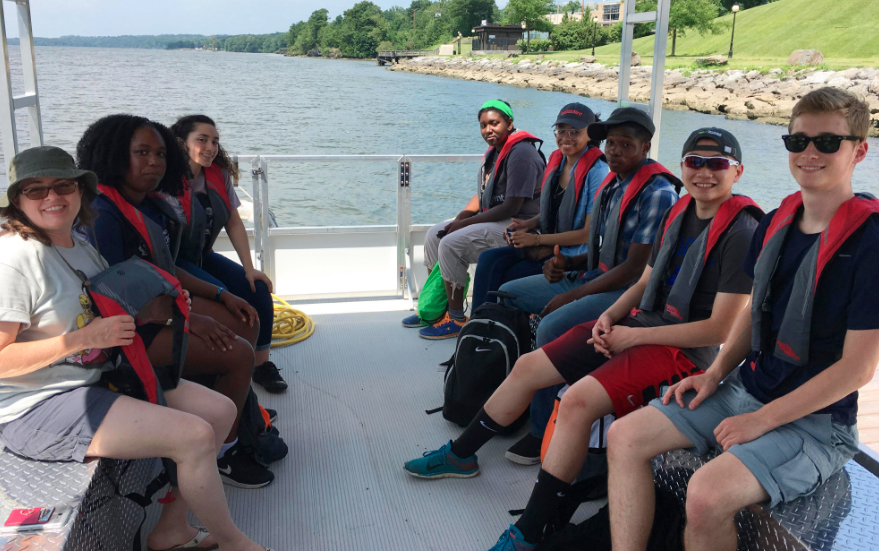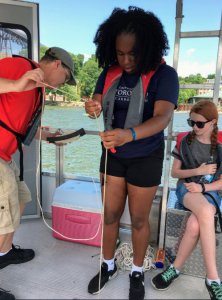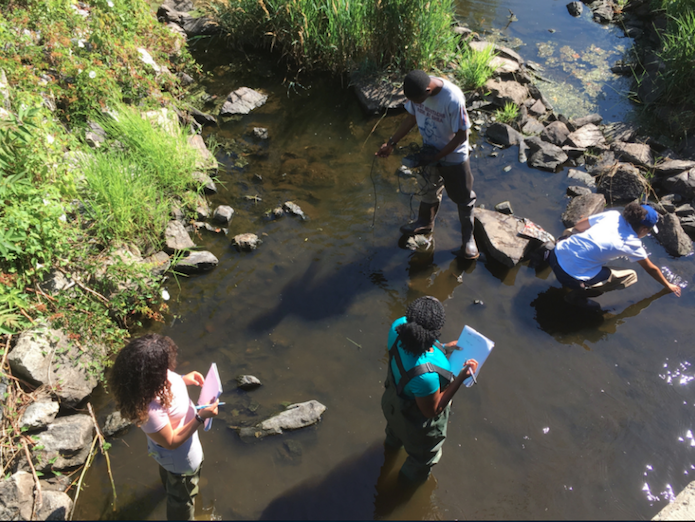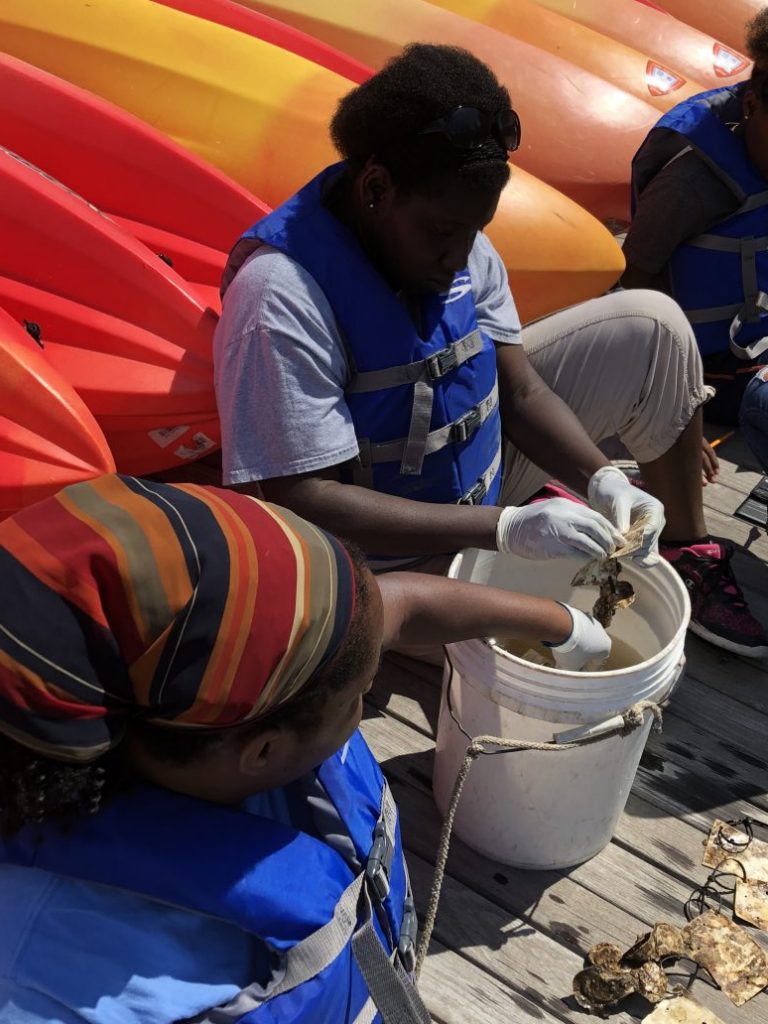
The Mid-Hudson Young Environmental Scientist pilot program (MH-YES) was located in Poughkeepsie, NY ~ 70 miles north of New York City. Summer 2018 partners included the Cary Institute of Ecosystem Studies, Marist College and Poughkeepsie High School. The program was coordinated by Rhea Esposito, program lead for Education & Outreach at Cary.

The tiered mentoring for the high school students in this pilot program was structured with scientists, hig school science teacher and undergraduates. Stuart Findlay, an aquatic ecologist at Cary Institute, and Raymond Kepner, an assistant professor of biology at Marist College, coordinating the sience projects. Two Poughkeepsie High School biology teachers, Lori Thompson and Michael Gendler worked alongside undergraduate mentors, Claire Sickinger (Bates College) and Shawna Neale (Marist College) to assist in tier-mentored research.
Six students, all rising seniors from Poughkeepsie High School, Arlington High School, Our Lady of Lourdes High School and Oakwood Friends School, were selected to participate in the program. The students worked in two groups, each with a distinct research project supervised by one of the scientist. Stuart Findlay’s team studied the effects of salt pollution on terrestrial plant growth. They also explored soil characteristics that influence salt retention. Raymond Kepner’s team investigated the role of aquatic vegetation in supporting fecal indicator bacteria—a sign of sewage contamination in freshwaters.

The six week program began with a one week residency camp at Marist college and then ran Monday through Friday as a day program. During the program six different collection sites were sampled through their research. Each week there was at least one field trip, which included riding the Sloop “Clearwater,” canoeing at Iona Island, visiting the Poughkeepsie Farm Project, visiting the Piermont Marsh with Lamont’s Secondary School Summer Research Program and eating water chestnuts at Norrie Point Environmental Center in Staatsburg. Students also collaborated with with Scenic Hudson and the Hudson Valley ReEntry Network to lead a community cleanup day around the Fallkill Creek in Poughkeepsie.
At the end of the program, on August 10th, the students presented their research to community members, family, and the general public at a project symposium at Cary Institute in Millbrook, NY.The MH-YES program linked with the other summer pilots several times during the summer. They coordinated a visit to the Hudson River Park Manhattan pilot to sample the oyster cages and attend a panel presentation on Diversity in STEM. As a culminating experience they participated in a joint poster session with all the pilot projects.

Press coverage for the MH-YES pilot program included newspaper articles in the Poughkeepsie Journal and Northern Dutchess News & Creative Living, as well as an online press release by the Cary Institute of Environmental Studies.
